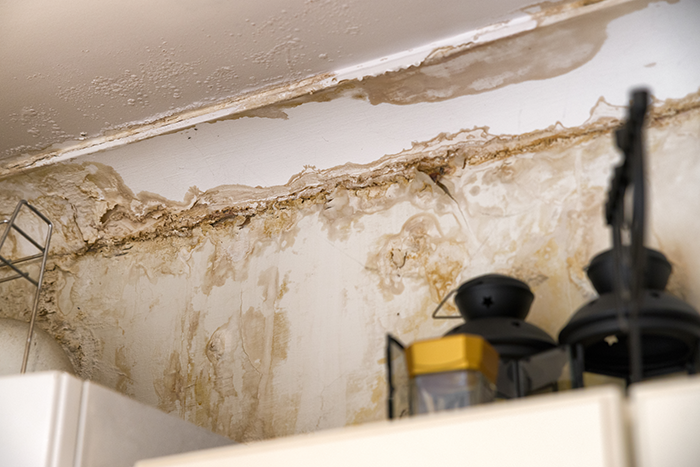Mould is never a good sign in your home. Whether you just found it, or knew about it for some time, the thought of putting your home up on the market might have crossed your mind.
But can you sell a home with mould? The short answer is that you can sell a home with mold in it, but you need to disclose it when selling.
Mould is a common problem in houses , because the amount of moisture in the air can make them susceptible to mould. But when it’s serious, mould causes many issues.
At the end of the day, a home with mould issues will sell for less.
But before we get ahead of ourselves, let’s go through the steps of selling your home with mould.

Steps when Selling a House with Mould Problems
As you’d expect when selling a home with mould, it’s not a simple or straightforward process. However, there are some definite things you can do, like:
Get an inspection
Not all mould is hazardous, but the majority of people will assume it is a threat to their health. However, large amounts of mould can cause a lot of damage, but it depends on the type.
- Pathogenic infections can affect both weak and strong immune systems.
- Allergenic is not dangerous in small amounts, but it can trigger allergies as well as asthma.
- Toxigenic mould that contains mycotoxin, which can very harmful to a person’s health.
As a rule of thumb if you can see the mould, there’s no need to get an inspection, but if you’re concerned about what type it is, you can hire a company to swab the mould.
The next step is to clean it, but when should you hire an expert?
Cleaning mould and when you should call the experts
Once you’ve found where the mould is situated in your home, you can get ready to start tackling it. If you’re looking to save cash, removing the mould can be done easily with a mixture of bleach and small hand scrubbing tools. If you’re not into using chemicals, you can use vinegar, baking soda, and tea tree oil.
While you can clean up mould, it’s better to solve the underlying issue.Mould feeds on water, so if it keeps recurring it might be because of a leak in your plumbing system. But for those wondering if the contaminated area is larger than 3 square metres, it is better to call in experts. As the potential for the mould to gain more traction is a real threat. Also, having an expert to remove the mould properly the first time will save you loads of time scrubbing.
You should always be sure to complete your own home inspection. You should check the attic or crawl spaces, which are areas that aren’t regularly inspected by an inspector. If mould is detected, the buyer is bound to ask for it to be removed.
Now that you’ve dealt with the mould, there are still processes to follow during the sales process.
Disclose the mould issue
No matter whether you’ve dealt with the issue, you should always make sure that the mould is mentioned in the disclosure. It doesn’t matter how large or small it is, you should always make sure that it is stated in the disclosure forms.
If you’re working with a realtor, they will have the knowledge and expertise to fill out your disclosure form for you. They might also offer advice about mould remediation precautions, so it’s a good idea to ask.
To ensure you’ve documented it correctly, you could include:
- Photos of the infestation and what you did to clean it
- A written document outlining what you did
- Reports and receipts if you have got professional help
- And your ongoing effort to dry out the area.
We also recommend that you ask where the waste material is being disposed of, as well as for documents indicating whether the mould is hazardous.
And always ask if the company has insurance coverage, just in case the mould returns.
But what if this is all too much work?
Give the buyer credit
For those who have no time to sort out the mould themselves, and it is discovered during an inspection, you can offer the potential buyer credit to hire professionals to deal with the issue.
We believe this will take care of what you need and should answer all their concerns. If the buyer does accept, we don’t anticipate you having any issues moving forward. And as a rule of thumb, make sure that you take all the steps to prevent mould growth throughout the home.
But what if you’re not interested in making a deal with a buyer? You could sell your house for cash to an iBuyer service like ours

